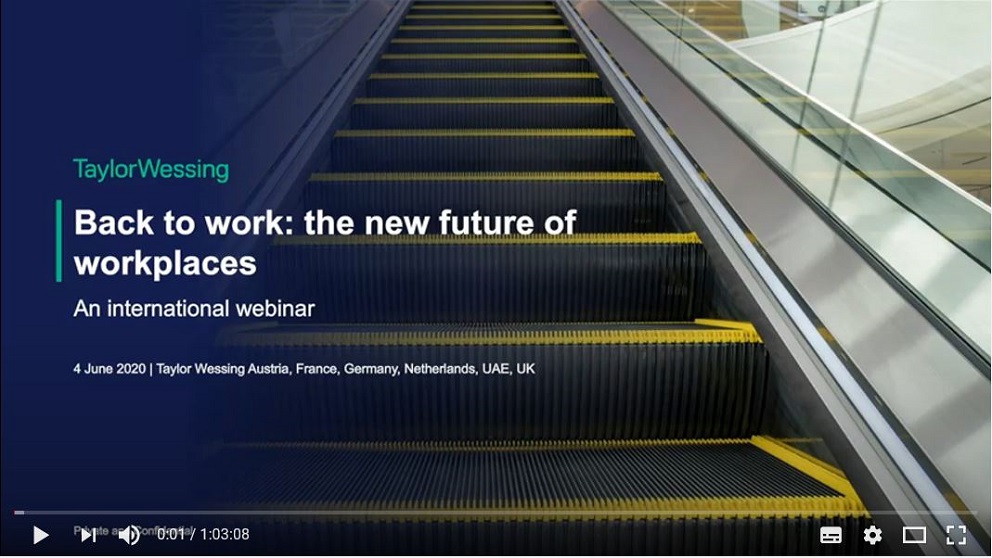In light of national governments across the world increasingly loosening lockdown restrictions, our international employment law experts recently discussed in a webinar what the new future of the workplace may look like in Dubai, the UK, Germany, the Netherlands and Austria.
This summary article captures some of the key discussion points. If you would like talk through any of these points in more depth, please feel free to contact a member of the team on this page
Priorities have shifted
Before the corona pandemic, health and safety, working from home and short time work were not HR’s highest priority. Now these are hot topics to address for any HR department.
Country policies differ between laissez-faire, strict rule and gradualism
In Austria, borders are re-opening, just like restaurants, hotels, shops and sports facilities. Events up for up to 250 people will be allowed, steadily increasing. Private events can be held at one’s own authority. The UK reacted late with their lockdown, which since then has been extremely strict, and is gradually opening up once again. Other countries are somewhere in between laissez-faire, strict rule and gradualism.
There is no international one size fits all approach for HR
In Dubai, employees will have to get their temperature checked by statutory order when entering their office building, and then again when actually entering their office. If the temperature exceeds 37.5˚, they are denied entry. In France, this is unthinkable. Due to medical privacy concerns, it is not for the employers to monitor their employees’ health condition.
Flexibility is more important than ever
We have some concepts and some rules to rely upon. No matter where you operate, it is key to be agile and flexible, in order to be able to react quickly to any new changes this crisis might bring.
Employee consultation the rule, not an exception
Whether returning to the office or factory, or whether working from home should continue: employers have to consider employee participation rights in these matters. Failure to do so might result in severe financial penalties in some countries.
Workplaces might go through a wave of change
The working atmosphere and environment is significantly different from what we were used to before. Digitisation evangelists have talked about new work and changes in labour organisation for some time. Now the first large-scale international experience of new work phenomena is underway. The study of something that was niche and very theoretical before is now the reality. Working from home is now centre stage: our lawyers are adapting to it, like you are, like the people you supervise. Take time to consider what these changes might mean to you personally, to your company and to your job.
These takeaways stem from an international employment webinar, covering UK, Germany, France, the Netherlands, Austria and Dubai on 4 June 2020.








